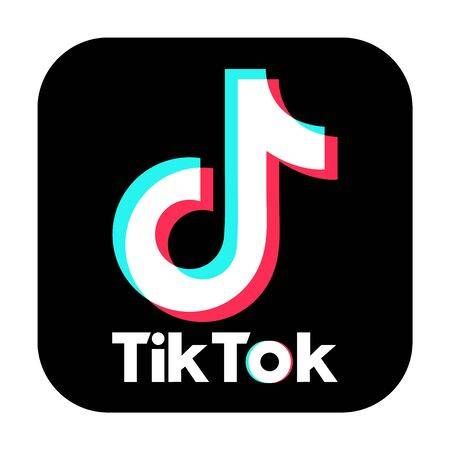
TikTok, Ban the short-form video app that has taken the world by storm, has become a hot topic of debate in recent years, especially concerning its security and privacy implications. While TikTok has amassed over a billion users globally, concerns surrounding its ownership, data privacy, and potential national security risks have sparked discussions about banning the app, particularly in the United States. In this article, we’ll dive into the reasons behind the proposed bans, the controversies surrounding the platform, and the potential impact such actions could have on users and creators.
The Rise of TikTok Ban
![]()
TikTok, developed by the Chinese company ByteDance, exploded in popularity soon after its launch in 2016, providing users with an easy-to-use platform for creating and sharing short videos. The app’s algorithm, which curates personalized content for users based on their viewing habits, helped it quickly attract a massive audience. With trends, viral challenges, and content creation tools that appealed to Gen Z and Millennials, TikTok became one of the most downloaded apps in the world.
However, with its rapid success came increased scrutiny from governments around the world, particularly the United States, over concerns about data privacy and potential ties to the Chinese government.
Why is TikTok Facing Potential Bans?
The main reason behind the proposed bans on TikTok Ban revolves around national security concerns, specifically its ownership by ByteDance. Critics argue that TikTok’s parent company, being based in China, is subject to Chinese laws that could compel it to share user data with the Chinese government. This concern has gained traction in light of growing tensions between the U.S. and China over trade, technology, and security issues.
U.S. lawmakers have repeatedly expressed concerns that TikTok Ban could collect vast amounts of user data, including location, browsing habits, and personal information, which could then be accessed by the Chinese government. This, they argue, could pose a national security risk, particularly if the data is used for espionage or influence operations.
In 2020, these concerns led former President Donald Trump to sign an executive order banning TikTok in the U.S., citing national security risks. However, this order was challenged in court, and TikTok has since remained available in the U.S. under the Biden administration, though discussions about its future continue.
Privacy and Data Security Concerns
TikTok has repeatedly denied allegations that it shares user data with the Chinese government, emphasizing that its U.S. user data is stored on servers located in the United States, with backup servers in Singapore. Despite these assurances, critics remain skeptical, citing the potential for ByteDance to be influenced by Chinese government authorities.
In response to the ongoing scrutiny, TikTok has taken several steps to reassure regulators and users, including increased transparency about its data practices and efforts to localize data storage. The company has also proposed creating a new U.S.-based company, TikTok Global, that would operate independently of ByteDance, with the involvement of U.S. companies like Oracle and Walmart.
However, these measures have not completely alleviated concerns, with some U.S. lawmakers pushing for stricter regulations or an outright ban.
The Impact of a TikTok Ban
If TikTok were to be banned in the U.S. or other major markets, the impact would be felt across several levels—by users, creators, and the broader social media landscape.
1. Users and Creators
TikTok’s vibrant community of content creators has grown significantly, with many users building careers and generating income through sponsorships and brand partnerships on the platform. A ban would leave many creators in limbo, forcing them to migrate to other platforms like Instagram Reels, YouTube Shorts, or emerging competitors like Triller. For users, it would mean losing access to an app that has become a central source of entertainment, education, and even political discourse.
2. The Social Media Industry
A TikTok ban could shake up the social media industry, opening opportunities for other platforms to fill the void. Instagram and YouTube, which have already introduced short-form video features to compete with TikTok Ban, would likely see a surge in users. However, these platforms may not fully replicate TikTok’s unique algorithm and user experience, leading to a fragmented content ecosystem.
3. Global Implications
TikTok’s ban could set a precedent for how governments regulate foreign-owned apps and platforms in the future. Countries around the world could follow suit, restricting or banning apps based on concerns over data security and national sovereignty. Such actions could further escalate tensions between global tech companies and governments, leading to more stringent regulations across the tech sector.
The Future of TikTok
As of now, TikTok Ban remains available in most major markets, including the U.S., but its future is far from certain. In March 2023, the Biden administration gave ByteDance an ultimatum: sell its U.S. operations or face a potential ban. While TikTok has resisted calls for a complete sale, the company continues to negotiate with U.S. authorities over security concerns and data transparency.
Additionally, the company has introduced Project Texas, a plan aimed at addressing data security concerns by storing U.S. user data on Oracle-operated servers, independent of ByteDance’s control. This initiative, TikTok Ban hopes, will satisfy U.S. regulators and prevent a ban. However, whether these measures will be enough to calm the fears of lawmakers and security experts remains to be seen.
Conclusion
The debate over a TikTok ban highlights the broader issues of data privacy, national security, and global tech regulation. As governments worldwide grapple with the challenges posed by foreign-owned apps, TikTok’s fate hangs in the balance. For its millions of users and creators, the potential loss of the platform would be significant, and the ripple effects could reshape the future of social media.
For now, TikTok Ban continues to thrive as a leading social media platform, but its long-term survival will depend on how it navigates the complex intersection of politics, technology, and global business.